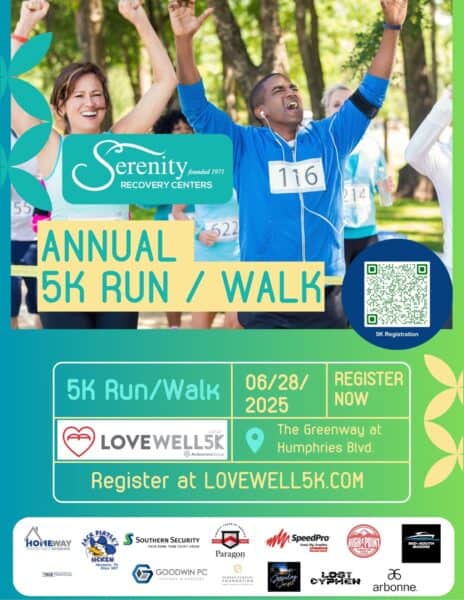Exercise and physical fitness play a crucial role in addiction recovery, offering both physical and psychological benefits that can significantly enhance the healing process. At Serenity Recovery Centers, we understand that a holistic approach to recovery includes nurturing not just the mind, but also the body.
The Science Behind Exercise in Recovery
When individuals engage in regular physical activity, their bodies release endorphins – natural chemicals that create feelings of pleasure and well-being. These same neural pathways are often affected by substance abuse, making exercise a valuable tool in recovery. Physical activity helps restore the brain’s natural reward system, providing a healthy alternative to substance-induced highs.
Research has shown that exercise can:
- Reduce cravings and withdrawal symptoms
- Decrease anxiety and depression
- Improve sleep quality
- Boost self-esteem and confidence
- Strengthen immune system function
Physical Benefits Supporting Recovery
During active addiction, physical health often takes a backseat. Exercise helps repair and strengthen the body in numerous ways. Regular physical activity improves cardiovascular health, builds muscle strength, and enhances flexibility. These improvements contribute to better overall health, which supports long-term recovery success.
Additionally, exercise helps regulate sleep patterns that may have been disrupted during substance use. Quality sleep is essential for both physical recovery and maintaining emotional stability during the rehabilitation process.
Mental Health and Emotional Well-being
The psychological benefits of exercise in recovery cannot be overstated. Physical activity serves as a natural stress reliever, helping individuals manage the emotional challenges that often arise during recovery. Regular exercise provides:
- A healthy outlet for stress and anxiety
- Improved mental clarity and focus
- Enhanced mood stability
- Increased self-discipline
- A sense of accomplishment and progress
Social Benefits and Community Connection
Group exercise activities can provide valuable social support during recovery. Whether it’s joining a gym, participating in team sports, or attending fitness classes, these activities offer opportunities to build healthy relationships with others who share similar wellness goals. This social component helps combat the isolation that often accompanies addiction and recovery.
Implementing Exercise in Recovery
Starting an exercise routine during recovery should be approached gradually and mindfully. We recommend beginning with moderate activities and slowly increasing intensity as strength and stamina improve. Some effective options include:
- Walking or jogging
- Swimming
- Yoga or stretching
- Strength training
- Group fitness classes
It’s important to choose activities that are enjoyable and sustainable, as this increases the likelihood of maintaining the routine long-term. Working with fitness professionals who understand addiction recovery can help develop safe and effective exercise plans.
Creating Sustainable Habits
Developing a consistent exercise routine takes time and patience. Setting realistic goals and celebrating small victories helps build momentum and maintain motivation. We encourage our clients to:
- Start with manageable goals
- Track progress regularly
- Mix different types of activities to prevent boredom
- Listen to their bodies and rest when needed
- Find workout buddies for accountability
Overcoming Common Challenges
Beginning an exercise routine during recovery can present certain challenges. Some individuals may face physical limitations, while others might struggle with motivation or time management. It’s important to address these obstacles with patience and support, remembering that any progress is positive progress.
Working with recovery counselors and fitness professionals can help develop strategies to overcome these challenges and maintain consistency in physical activity.
The Role of Nutrition
Exercise and proper nutrition go hand in hand in supporting recovery. A balanced diet provides the energy needed for physical activity and helps repair the body from the effects of substance abuse. Proper nutrition also supports mental health and emotional stability, creating a strong foundation for recovery.
At Serenity Recovery Centers, we believe in empowering our clients with the tools and knowledge they need for successful, lasting recovery. Exercise and physical fitness are essential components of our comprehensive approach to addiction treatment. Our experienced team works with each individual to develop personalized fitness plans that complement their recovery journey. Remember, every step forward, no matter how small, is progress toward a healthier, substance-free life.
To learn more about our programs and how we incorporate physical fitness into addiction recovery, contact Serenity Recovery Centers today. Our compassionate team is here to support you on your journey to wellness.
